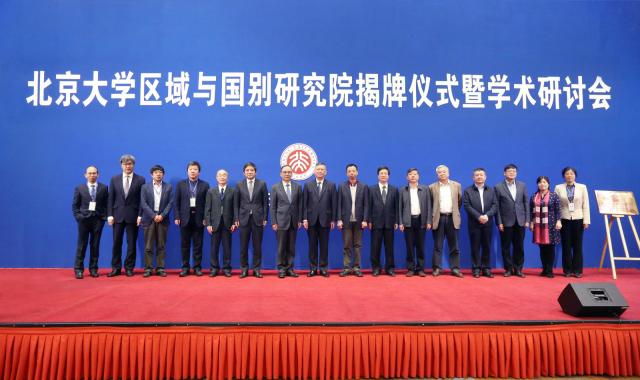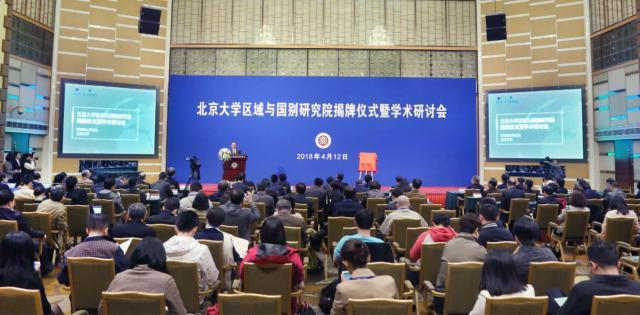
The Unveiling Ceremony of Peking University's Institute of Area Studies (PKUIAS) (a.k.a. The 1st "All Under Heaven Forum") was held in Yingjie Exchange Centre on April 12. More than 200 officials and academics participated, including Liu Xincheng, Vice Chairman of the National Committee of Chinese People's Political Consultative Conference (CPPCC) and Executive Vice Chairman of Central Committee of the China Association for Promoting Democracy (CAPD); Tao Hongjian, Counsellor of the Ministry of Education; and Shi Zihai, Deputy Secretary General of the National Development and Reform Commission. PKU Vice president Wang Bo hosted the ceremony, with PKU President Lin Jianhua making a speech.
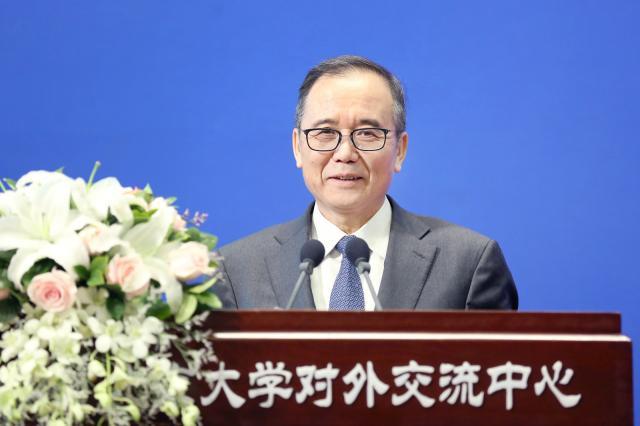
Lin said that China is at the critical moment of transforming from a “regional” country to a “cosmopolitan” country, which requires the academic community to know more about the world. He stressed that universities and research organizations should provide academic and talent support for the development of the country and the world. PKU has prominent advantages in subjects like foreign languages and history, both of which are important for area studies. But it also faces challenges, such as the separation between basic language teaching and other subjects, and the large gap between historical and cultural studies and finding solutions for practical problems. Therefore, PKU has set up three interdisciplinary fields including area studies, and made area studies a platform to integrate academic resources, adjust subject composition and provide strategic consultation for the country.
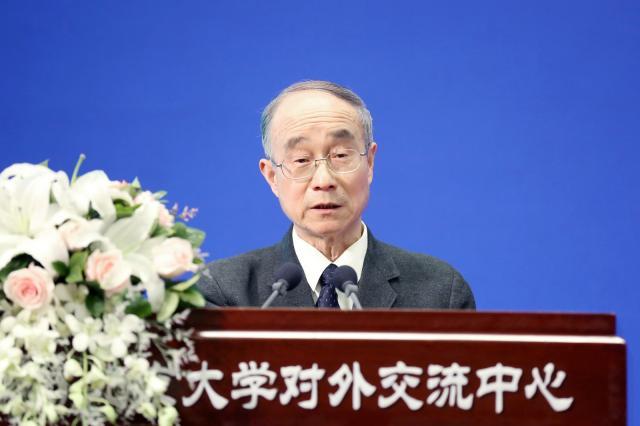
Director of PKUIAS Prof. Qian Chengdan introduced the blueprint for the establishment of the institute from three respects.
The first is “Why to conduct area studies?” Prof. Qian pointed out that tremendous changes have been taking place in the world's systems. Driven on by China's reform and opening-up and the deepening of international exchanges, we must be prepared to face all the challenges, for which the precondition is a better understanding of the world. Area studies serves as a tool to understand and study the world.
The second is “the advantages of PKU.” PKU has a long history in conducting area studies, and the establishment of IAS provides a platform to integrate relevant subject resources at the university.
Last but not least is “How will it be done?” Qian said the functions of PKUIAS are academic research, talent cultivation, serving as a think tank and working to intensify academic exchanges at home and abroad. PKUIAS will insist on the guidance of basic research and conduct both fundamental and predictive studies covering major issues in the key countries and regions. It will provide a research paradigm with Chinese characteristics and PKU’s advantages to contribute to the country's area studies and international academic exchanges and development.
Liu Xincheng shared his insights on how to conduct area studies in terms of PKUIAS’ think tank function. He said that there are advantages to establishing area studies institutes at universities because universities have the advantages of conducting comprehensive studies and doing independent and objective analysis, which can positively affect the younger generations on campus. It also has a contribution to make to the construction of a “community of common destiny” and demonstrates China's accountability as a major responsible country.
He also suggested that PKUIAS should set its goals and proactively launch new types of international cooperation with other countries and regions with the goal of enhancing mutual understanding. He said the institute should not only complete the construction of its management and assessment systems at the school-level but also establish a talent pool and an information pool, as well as handle the relationship between academic research and application research.
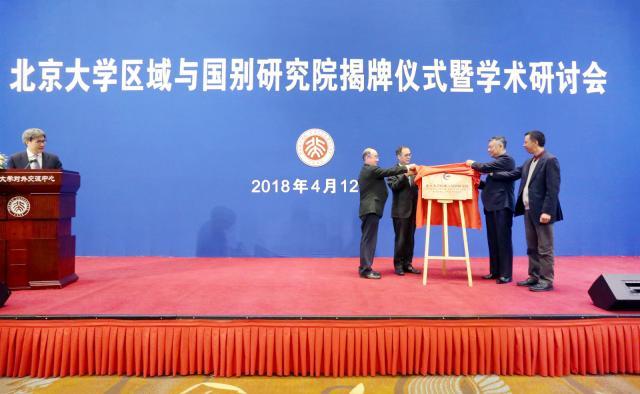
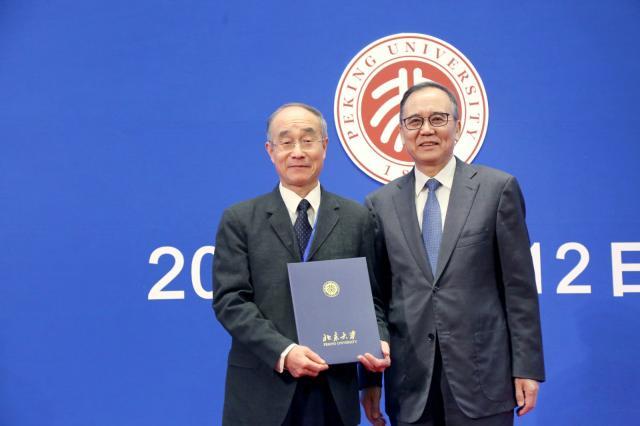
The first session of the "All Under Heaven Forum" was held after the unveiling ceremony. Prof. Wang Jisi, Prof. Shen Zhihua and Prof. Rong Xinjiang respectively gave academic reports about the academic frontier of area studies at the forum.
Wang Jisi's report focused on the academic foundation of area studies. He said that area studies should be based on already developed subjects, such as political science. He opined that research should cover both unique characteristics of different countries as well as what they have in common. Currently, what is needed is not documents and materials but theoretical support. He gave some suggestions on area studies:
1. Area studies need both specialists and all-round experts.
2. A curriculum needs to be designed.
3. The approaches to doing research should be in the country’s interest; meanwhile, academic standards should not be judged by political discourse.
Shen Zhihua pointed out that the foundation of area studies is the study of history. Academics who serve in the role of “think tank” for the country should not blindly follow others but endeavor to provide new insights and academic support for the country’s strategic decisions. He emphasized that the key to knowing neighboring countries and regions is studying their documents. Shen has collected a large number of important documents during his work and hopes to make contributions to area studies.
Rong Xinjiang introduced the tradition and status quo of Central Asia studies at PKU as well as the importance of conducting research on Central Asia regions. He also expressed his hopes for Central Asia studies in the future.
